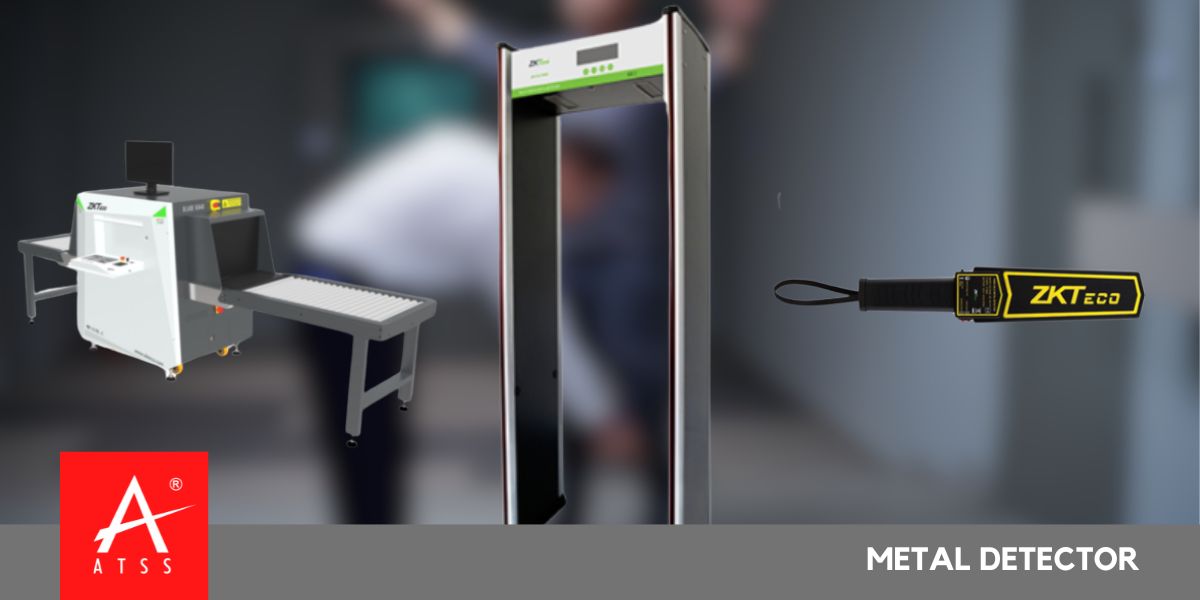Metal Detector:
Who Uses Metal Detectors?
Metal detector are used by a broad spectrum of people and industries. From law enforcement officers to security personnel, airport staff to school administrators, and even hobbyists and treasure hunters—metal detectors serve a critical function in ensuring safety and exploration.
Key Users:
- Security agencies – for body scanning and threat detection
- Airports and transit systems – for screening passengers
- Educational institutions – to ensure student safety
- Corporate buildings and offices – for controlled access
- Event managers – to screen attendees
- Industrial facilities – for quality control and metal contamination detection
- Archaeologists and hobbyists – for treasure hunting and historical exploration
What Are Metal Detectors?
A metal detector is an electronic device that senses the presence of metal nearby. Used in various settings, the primary goal of a metal detector is to identify potentially dangerous metallic objects or find hidden treasures underground.
Types of Metal Detectors:
- Handheld metal detectors – portable and ideal for quick inspections
- Walk-through metal detectors – used at entrances for mass screening
- Underground metal detectors – designed for mining and exploration
- Industrial metal detectors – used in manufacturing lines to detect metal contaminants
Where Are Metal Detectors Used?
Metal detectors are a common sight in public and private spaces where security is a priority. They’re also extensively used in fieldwork and industrial operations.
Common Locations:
- Airports and railway stations
- Schools, colleges, and universities
- Government buildings
- Corporate offices and data centers
- Event venues and stadiums
- Factories and food processing plants
- Historical sites and open fields (for treasure hunting)
When Do You Need a Metal Detector?
Knowing when to implement a metal detection system is crucial for maximizing security and efficiency.
Situational Uses:
- Before high-profile events (concerts, rallies, sports matches)
- During heightened security threats or emergencies
- For daily use at secure facilities like airports and labs
- When ensuring compliance with safety protocols in schools or factories
- For personal use during outdoor exploration and treasure hunting
Why Use a Metal Detector?
The benefits of metal detectors go beyond basic security. They provide peace of mind, regulatory compliance, operational efficiency, and even entertainment in the case of hobbyist use.
Benefits Include:
- Improved security – detect concealed weapons and unauthorized objects
- Non-invasive screening – fast and respectful process
- Compliance – meet safety and regulatory standards
- Efficiency – reduces manual inspections
- Cost-effectiveness – long-term savings on security infrastructure
- Productivity – prevents metal contamination in industrial products
- Exploration – helps archaeologists and hobbyists uncover hidden items
How Do Metal Detectors Work?
Metal detectors operate using electromagnetic fields. When metal is in proximity, it disturbs this field and triggers an alert.
Basic Operation Process:
- Transmission coil generates an electromagnetic field
- Metal object disturbs this field
- Receiver coil detects the change
- Alert system (sound, light, vibration) activates
Advanced Features:
- Multi-zone detection
- Adjustable sensitivity levels
- Alarm discrimination settings
- Waterproof models
- Battery-powered and rechargeable options
- Integration with CCTV and RFID systems
Features, Advantages, and Benefits (FAB Framework)
Feature: Walk-through metal detector with multi-zone detection
Advantage: Accurately pinpoints object location on the body
Benefit: Speeds up screening and reduces manual checks
Feature: Portable handheld metal detector
Advantage: Easy to carry and operate
Benefit: Ideal for quick response teams and mobile units
Feature: Waterproof underground metal detector
Advantage: Works in various terrains and weather conditions
Benefit: Perfect for outdoor exploration and treasure hunting
Feature: Industrial-grade metal detector with alarm discrimination
Advantage: Avoids false positives from harmless items
Benefit: Ensures precision and efficiency in factories
Feature: Rechargeable battery-powered scanners
Advantage: Long operation without frequent charging
Benefit: Cost-effective and reliable in remote locations
Choosing the Right Metal Detector
When selecting a metal detector, consider:
- Purpose of use (security, industrial, or exploration)
- Environment (indoor/outdoor, high-traffic areas)
- Portability (handheld vs. walk-through)
- Detection sensitivity
- Battery life and power source
- Integration with existing systems
Recommended Models:
- Walk-through metal detector for events and airports
- Handheld metal detector for quick scanning
- Underground detector for exploration and archeology
- Industrial metal detector for factories and food processing units
Maintenance and Compliance
Regular maintenance and calibration ensure the metal detector performs optimally.
Tips for Maintenance:
- Clean the device regularly
- Test alarms periodically
- Update software if applicable
- Check battery levels
- Schedule professional servicing every 6-12 months
Compliance: Ensure your devices meet international and regional security and safety standards.
Conclusion
Metal detectors are no longer optional—they’re essential for safety, compliance, and peace of mind across multiple sectors. Whether you’re organizing a large event, managing a secure facility, or simply exploring the outdoors, choosing the right metal detection system can make all the difference. With this guide, you’re now equipped to understand who uses them, what they are, where and when to deploy them, why they matter, and how they operate.
Investing in the right metal detectors means investing in security, efficiency, and trust.
Need help selecting a metal detector for your business or event? Get expert guidance and explore high-quality devices tailored to your needs today! Call: 91500 12345.

